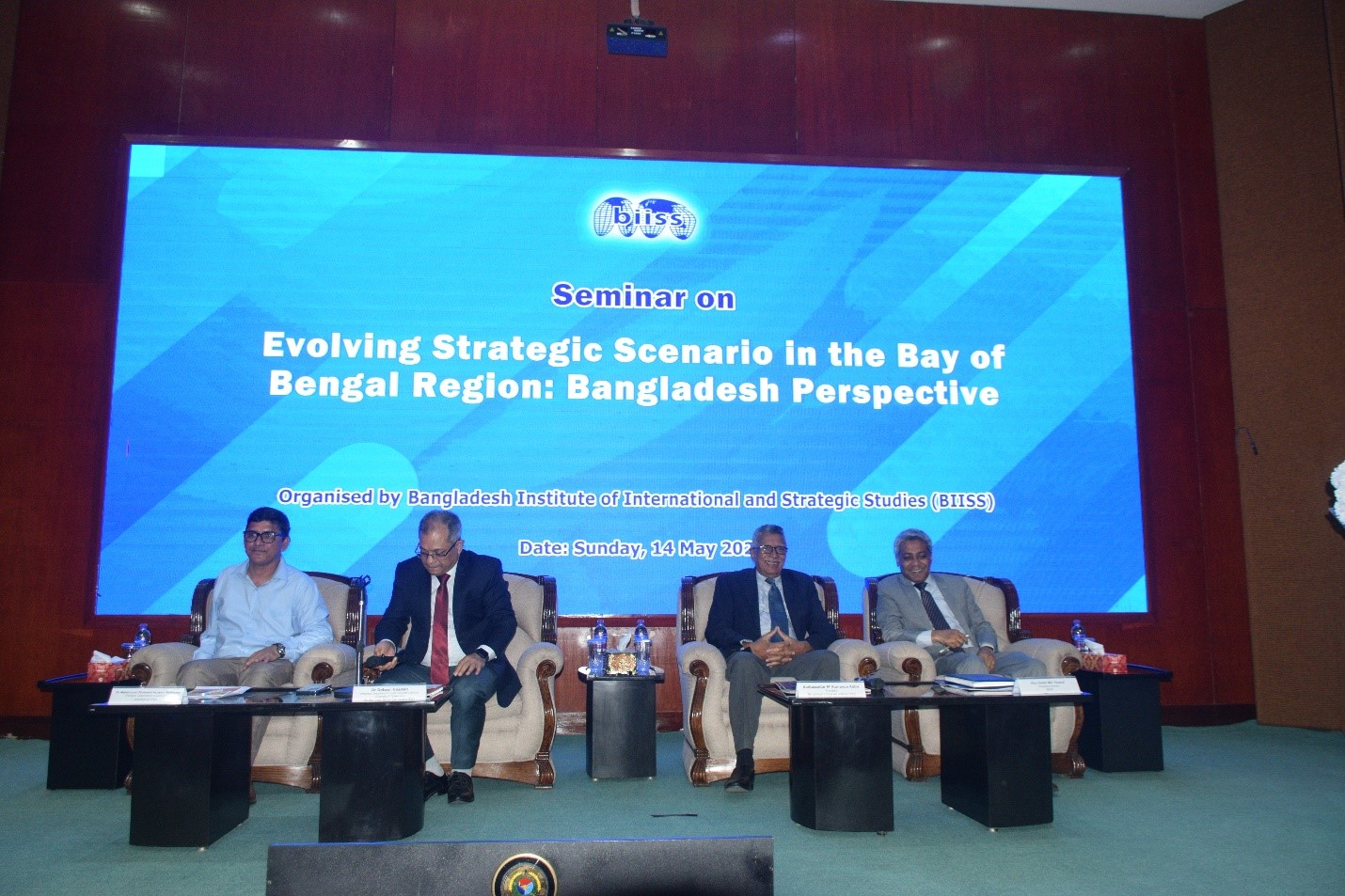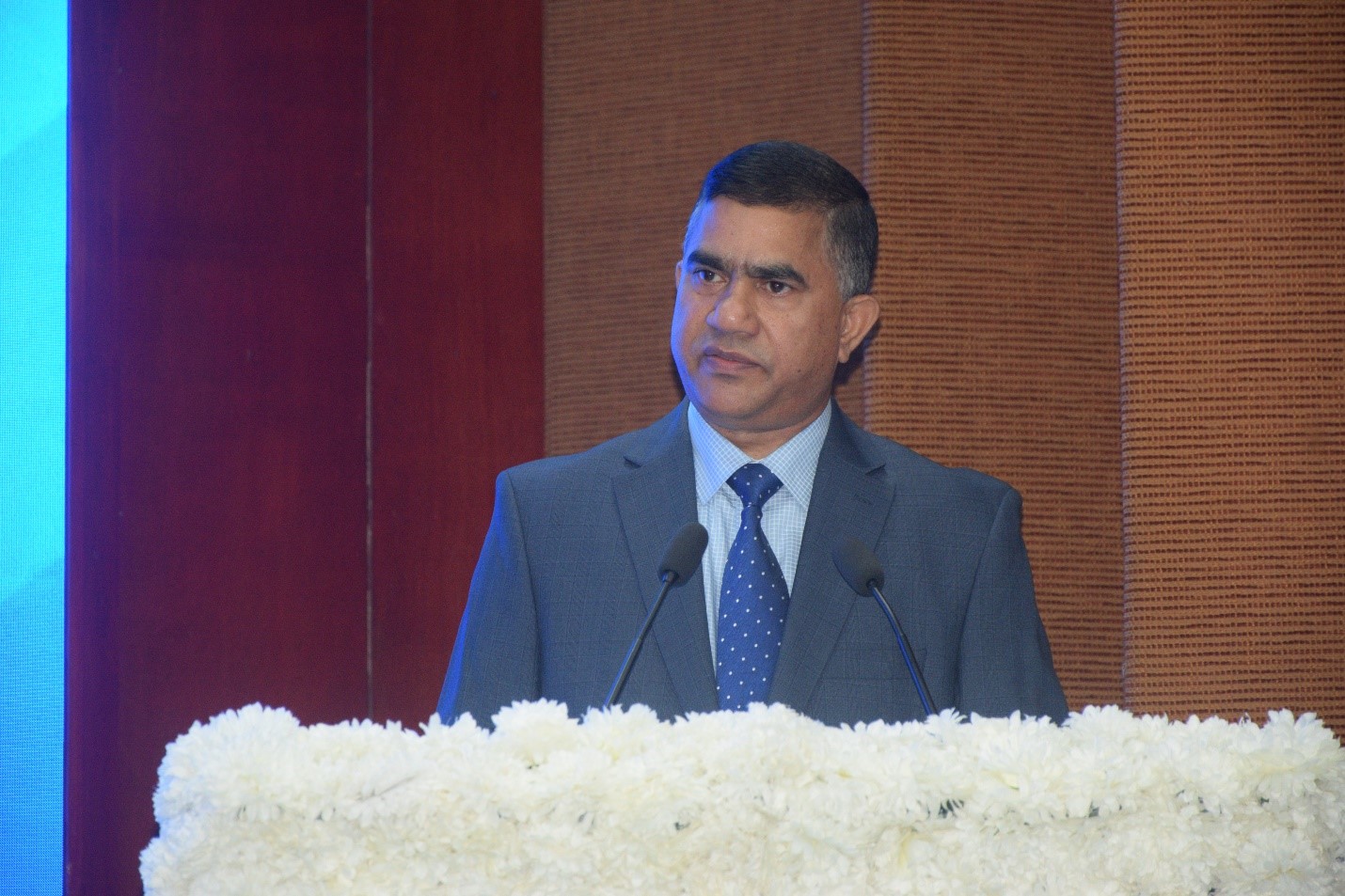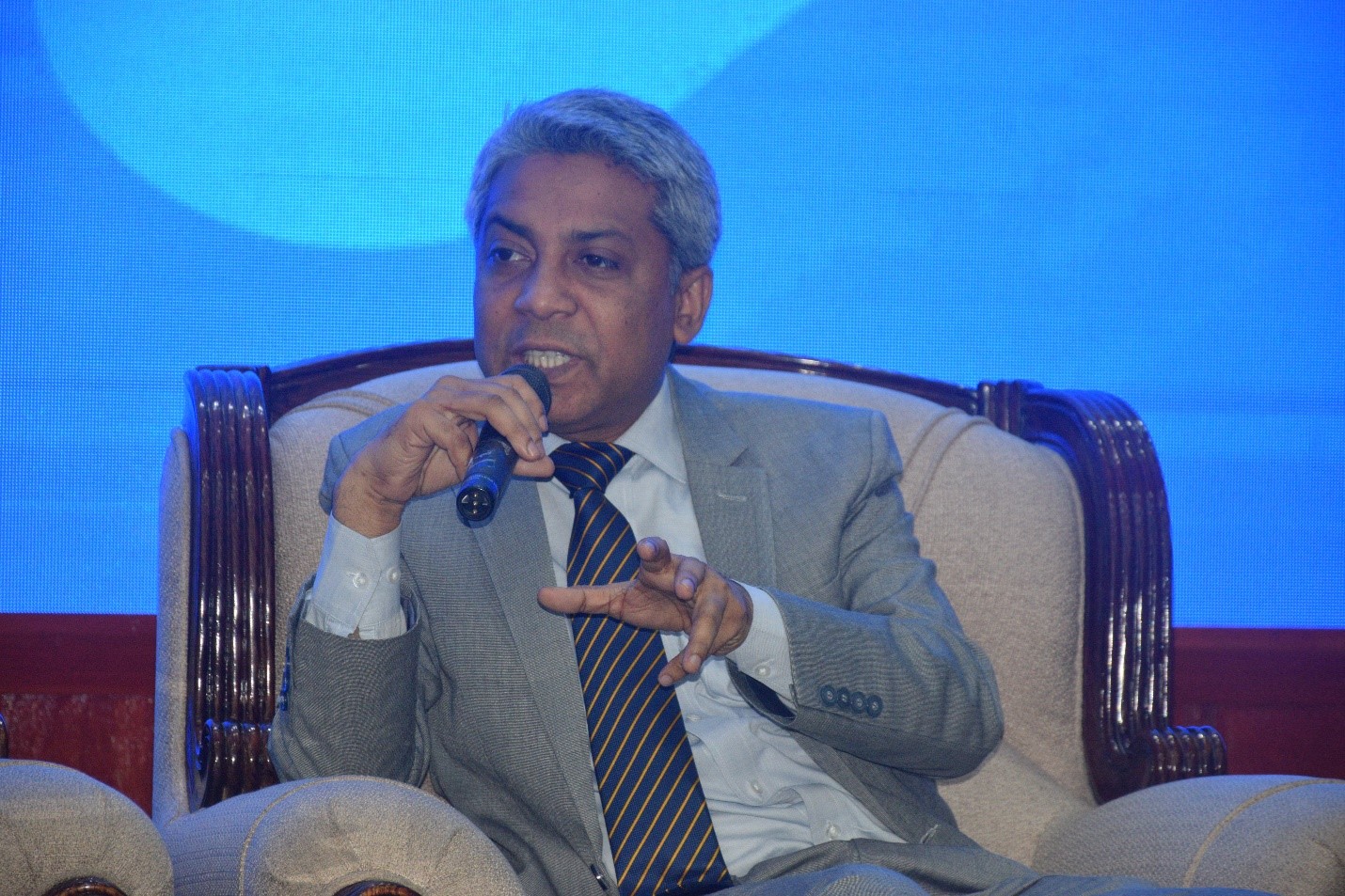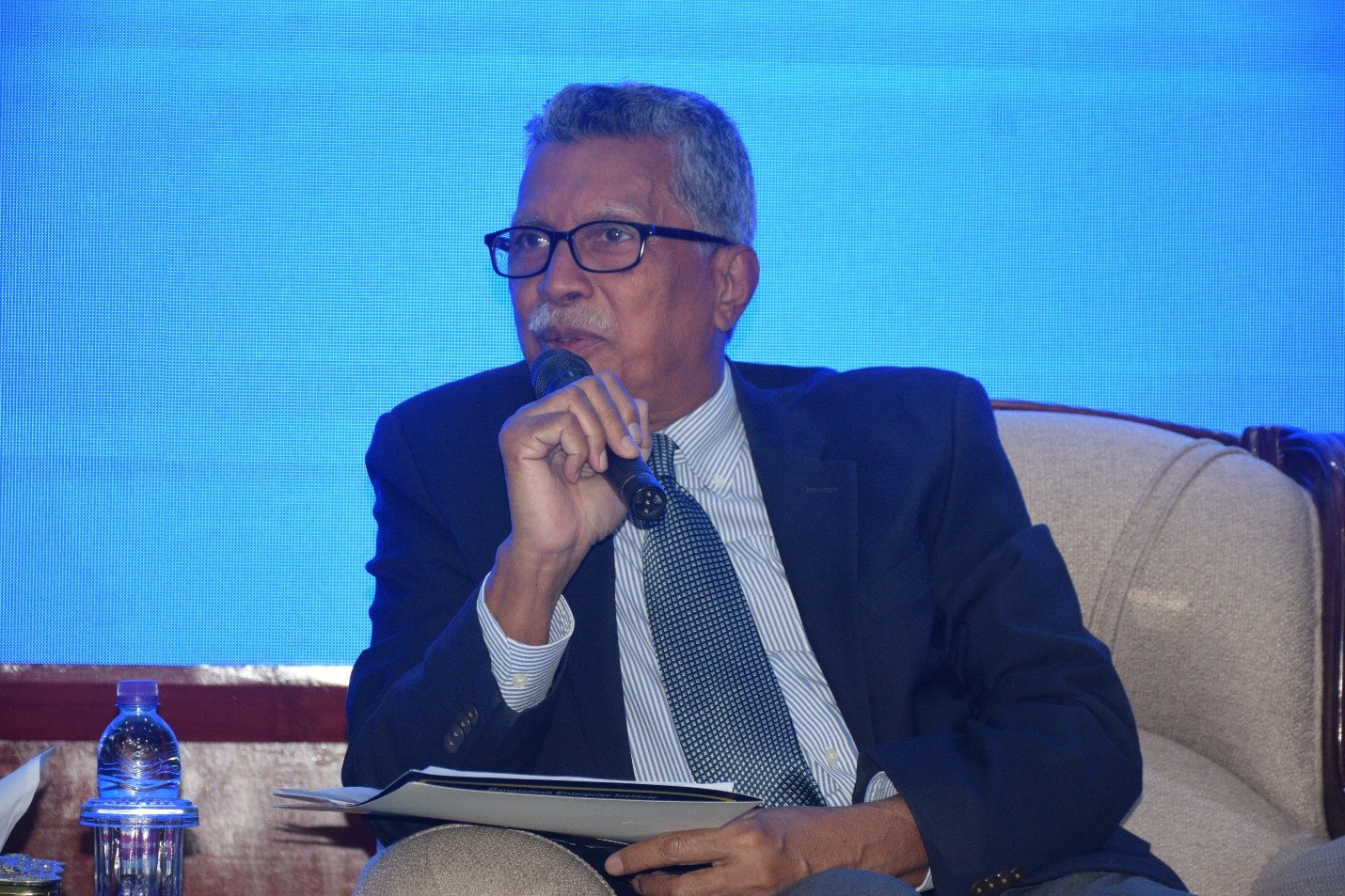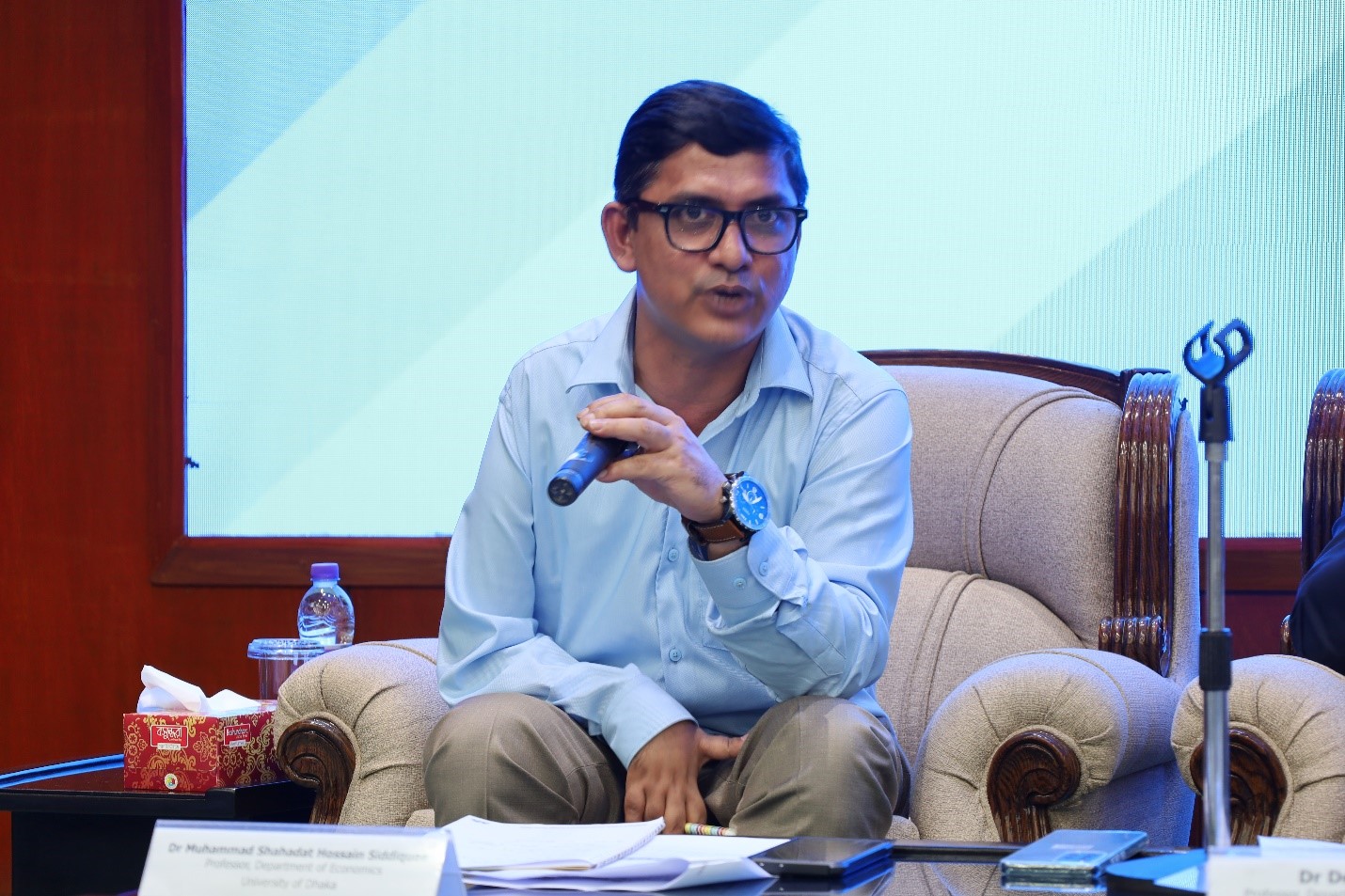Seminar on Evolving Strategic Scenario in the Bay of Bengal Region: Bangladesh Perspectives
DATE: 2023-05-14
Bangladesh Institute of International and Strategic Studies (BIISS) in collaboration with National Defence College, Dhaka, organised a Seminar on “Evolving Strategic Scenario in the Bay of Bengal Region: Bangladesh Perspectives” on Sunday, 14 May 2023 at the NDC Auditorium, NDC, Mirpur Cantonment, Dhaka. The seminar was organised for the visiting Royal College of Defence Studies (RCDS) delegation led by Lieutenant General (Retd) Sir George Pemberton Ross Norton, Commandant, RCDS. The Seminar was chaired by Dr Delwar Hossain, Professor, Department of International Relations, University of Dhaka and Member, Public Service Commission (PSC). Major General Sheikh Pasha Habib Uddin, OSP, SGP, BAMS, afwc, psc, Director General, BIISS, delivered the welcome address.
Three papers were presented in the Seminar. ASM Yousuf, Research Director, BIISS, made a presentation on “The Geopolitics of the Bay of Bengal Region and Priorities of Bangladesh”. Dr Muhammad Shahadat Hossain Siddiquee, Professor, Department of Economics, University of Dhaka, presented a paper on “Geoeconomisc of the Bay of Bengal Region and Sustaining Bangladesh’s Development Amidst Looming Global Recession”. Ambassador M Humayun Kabir, President of Bangladesh Entreprise Institute (BEI), presented his paper on “Rohingya Crisis and Responsibility of the International Community”.
There was an open discussion session in the Seminar. RCDS faculty and course members from nine different countries participated in the Seminar. They shared their valuable insights in the open discussion session.
In his address of welcome, Major General Sheikh Pasha Habib Uddin, OSP, SGP, BAMS, afwc, psc, Director General, BIISS said Bangladesh is a key littoral of the Bay of Bengal, a hub for regional and interregional trade and commercial activities. It promotes its own priorities, such as "Friendship to all, and malice to none", regional cooperation, multilateralism, economic cooperation, climate change and disaster management, defence diplomacy, maritime cooperation, and energy supply. Bangladesh is actively participating in regional multilateral arrangements to promote its development agenda. However, the Rohingya crisis is a major concern, and the country is focusing on engaging major regional and global powers to ensure stability. Bangladesh pursues a policy of mutual respect and benefit, tolerance and peace, and dialogue and negotiations.
Mr Abu Salah Md Yousuf, Research Director, BIISS presented the topic on “Geopolitics of the Bay of Bengal Region and the Priorities of Bangladesh.” He discussed the narratives of the smaller rising nations of the region, such as Bangladesh's success story, transformation and priorities. He remarked that, despite the competition, regional countries are trying to increase cooperation and get the best out of this situation. Bangladesh is one of the rising Bay of Bengal littorals and has been receiving increasing global attention. It has a foreign policy based on "Friendship to all, and malice towards none" and has been engaging in regional and sub-regional forums such as IORA, BIMSTEC, and BBIN. This has enabled Bangladesh to act as a conduit among the global and regional powers to tap into the opportunities and deal with the challenges.
Dr Mohammad Shahadat Hossain Siddiquee made his presentation on “Geoeconomics of the Bay of Bengal Regions and Sustaining Bangladesh’s Development Amidst Looming Global Recession.” He explained that geoeconomics is a study of the spatial, temporal, and political aspects of economies and resources. He discussed the three layers of the geoeconomics of the region: policy, integration, and transaction. Dr Siddiquee suggested that India should prioritise three sectors: food, energy, and technology to integrate regional business and trade. He also suggested strong collaboration among countries to address ecological threats and ensure a sustainable blue economy. The coastal shipping routes between India and Bangladesh are slowly being reopened, but there is a huge potential to improve the technological capabilities and increase production levels. He concluded that regional integration requires support from multilateral agencies such as the ADB to untap all the potential.
Ambassador Humayun Kabir, President, Bangladesh Enterprise Institute (BEI), and former Bangladesh’s Ambassador to the US, deliberated on “Rohingya Crisis and Responsibility of the International Community.” He noted that the forced displacement of 1.2 million Rohingyas to Bangladesh created humanitarian, legal and security challenges for Bangladesh and the entire region. He also discussed the issues of nation-building, human rights and justice, development, and connectivity between South Asia and Southeast Asia. He concluded that the resolution of these issues and the application of the principles of justice have strategic implications beyond the Rohingya issue. In his view, the Rohingya issue is obstructing Bangladesh's expansion into Asia and creating a divide between the East and West.
Apart from the above, senior officials from RCDS, senior military officials, NDC faculty members, and researchers from BIISS participated and contributed to the Seminar by asking valuable questions and raising comments.

